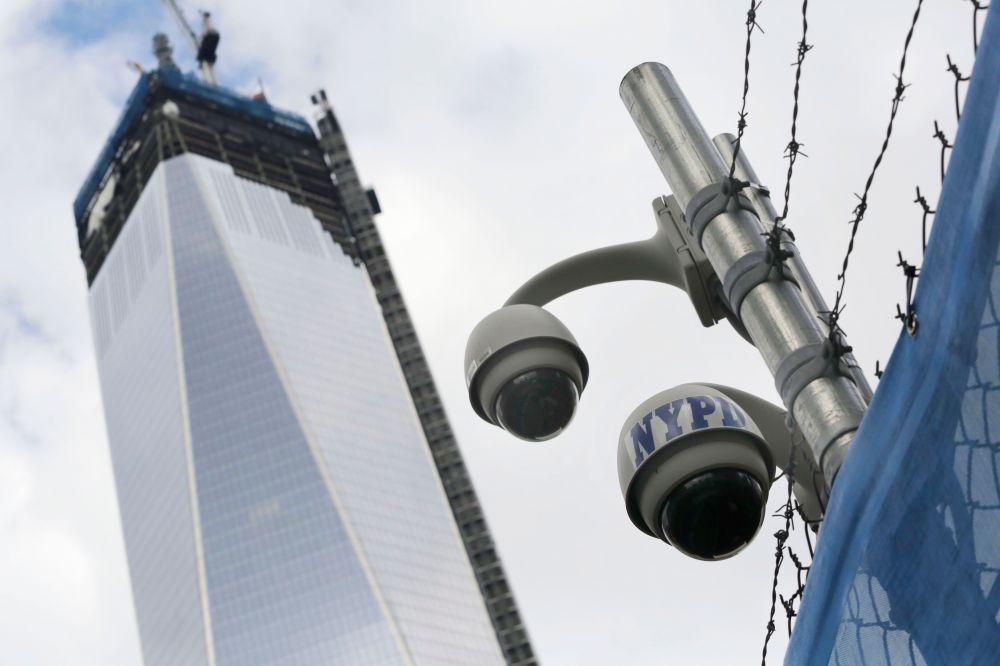
Privacy in America



One common theme in The Declaration of Independence and The Constitution is freedom, especially freedom against tyranny. In the plaque pictured below, it states how the market is to be kept for the people and shall always be for the people. It isn’t controlled by some big monarch or any one person, but instead is for everyone equally. . It is also the duty of the people to protect the market against those that would try to abuse it or extort it. This is similar to the duties of citizens regarding protecting the new free land. This plaque is like a mini constitution for the market; a declaration that the market will always be free and public
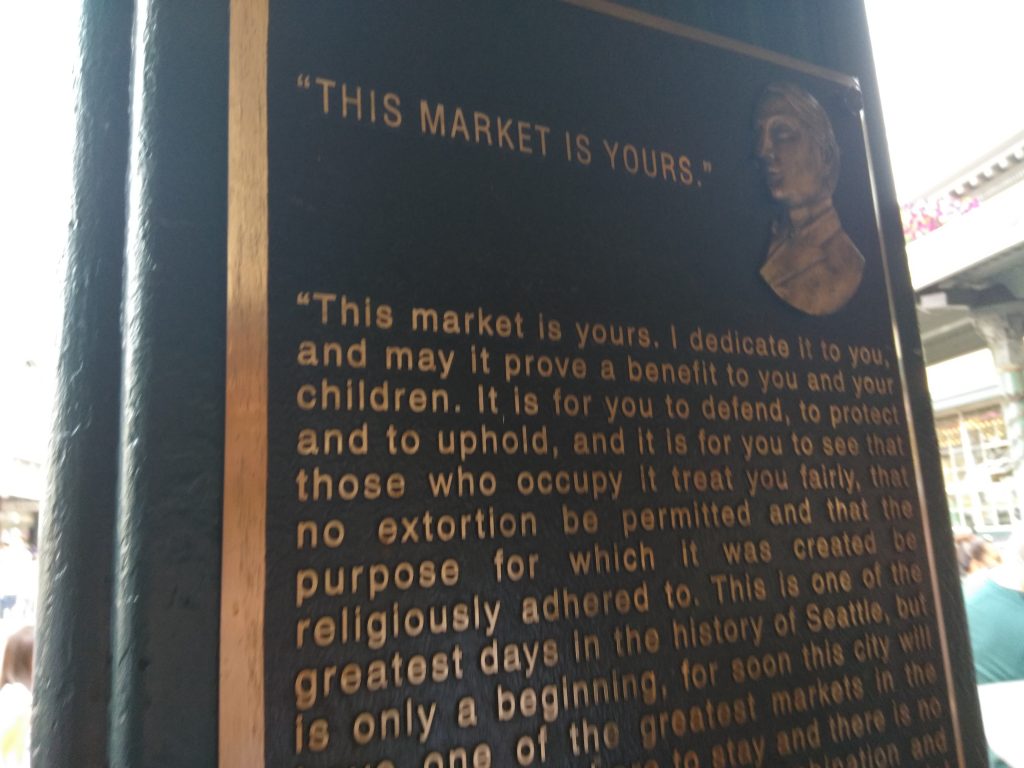
The picture posted below is the Gadsden Flag, a flag designed during Revolutionary America. From its design we see one of the major sentiments prevalent during the American Revolution. The rattlesnake and slogan best represent the idea of the government not encroaching on people’s rights, as before a threat approaches a rattlesnake always gives a warning with its rattle. If the aggressor is to proceed any closer, the snake bites. Coupled with the slogan “Don’t tread on me” it accurately warns the audience that only harm will come from injuring them. This connects with the Declaration of Independence in which it is stated that “Our repeated Petitions have been answered only by repeated injury. A Prince whose character is thus marked by every act which may define a Tyrant, is unfit to be the ruler of a free people.” In this statement we see that like a rattlesnake who has been given its warning and is ready to strike, the United States has already made fair warnings to Britain about its transgressions, and yet rather than heeding to them Britain has only added insult to injury, which has led America to finally revolt. Do think there are any other ways this sentiment is best expressed? How do you interpret the symbolism of this flag?

In the United States constitution, it is stated that “We the People of the United States, in Order to form a more perfect Union […] establish this Constitution for the United States of America.” What type of union is more perfect than the union of partitions of disjoint events?
Here I will compare the definition of a partition with the Union of states as discussed in the Constitution. The definition of a partition is as follows: a partition of a set X is a set of non-empty subsets of X such that every element x in X is in exactly one of these subsets (i.e., X is a disjoint union of the subsets). We see this idea that the Union of States (the United States) is a partition, shown in the Constitution in Article IV, section 3 on the discussion of the formation of new states. There it says that new states can be admitted into congress, but it cannot be formed or erected in the jurisdiction of any other state unless through agreement, and in section 4 it states that every state in the Union is guaranteed a republican form of government. As shown here, we can conclude that the United States is indeed a partition of the states it makes up: since each state is disjoint, and that the intersection of the states are the null set (no states share jurisdiction), and the union of all the states makes up the United States, then each state is thus a partition. In relation to the picture below, Ω represents the United States, where each subset Ω B1, B2, …, BN represents each state (a partition of Ω).
It is true however that the states are subordinate to the national government though. Could you disprove the notion that states are partitions of the United States by disproving the statement that the states are disjoint?
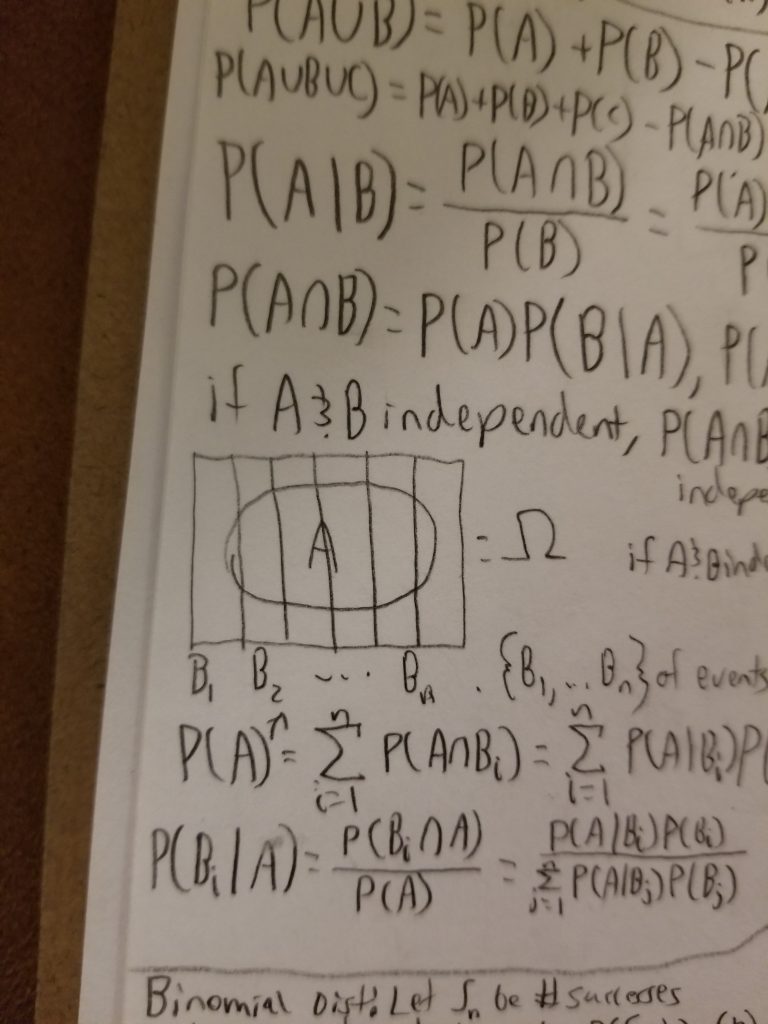
Walking around campus during rush hours, you will notice a wide range of people wearing a variety of outfits. Recently, I’ve begun to notice the existence of Clunky Trainers, often by the distinctive thud of the heavy shoe sole hitting the pavement. Being somewhat of a fashion expert myself with a very diverse selection of sweatshirts and sweatpants in my closet, I can’t help but imagine the different styles that I can potentially pair with the Clunky Trainers. To my dismay, I couldn’t find any. In fact, I cannot imagine myself wearing a pair. However, the high-frequency of sightings of these clunky trainers, made me hesitant to speak up. I was afraid of getting prosecuted by the clunky trainer gang being criticized for my radical views. A few days later, I noticed a sign in front of the Dr.Sesus library (shown in picture). I was surprised that someone shared my views, but I was more so amazed by his/her bravery for standing up against the unyielding fashion trend. I questioned maybe I should join their good cause.
*The writing above is a dramatization of certain actual events. Some of the events have been changed for dramatic and comedic purposes.
Thankfully, in modern society, we do not have to live in constant fear of saying something wrong. The First Amendment of the US Consitution protected our freedom of speech/expression.
“Congress shall make no law respecting an establishment of religion, or prohibiting the free exercise thereof; or abridging the freedom of speech, or of the press; or the right of the people peaceably to assemble, and to petition the Government for a redress of grievances”
–– The US Constitution, Bill of Rights, Amendment I
The First Amendment implied that Congress should not limit people’s freedom of speech, press, and assembly. This is a fundamental right that we often overlooked. We are lucky we live in a society/country where this is defined as a fundamental right. Putting up a poster and wearing clunky trainers are both forms of expressing themselves. Neither of those actions should be punished if the legal system is just. We can express our dislike or criticism of the different fashion, like the character(s) in the story, yet we should do no harm to opposers. This also connects well with Rousseau’s state of nature or Locke’s fundamental human rights. It is certainly interesting how the majority, including many great philosophers, seem to agree on the fundamental right of the freedom of speech, if not freedom in general. However, debates often arise in what constitutes freedom? To what extent should we have an extent? How can we balance freedom and the general welfare? How should we be defining harm? physical harm is obvious, but what about psychological harm? Are there moral cases where freedom should be limited or even, taken away? Is freedom absolute or situational, if so, how do we come to a consensus on different scenarios?
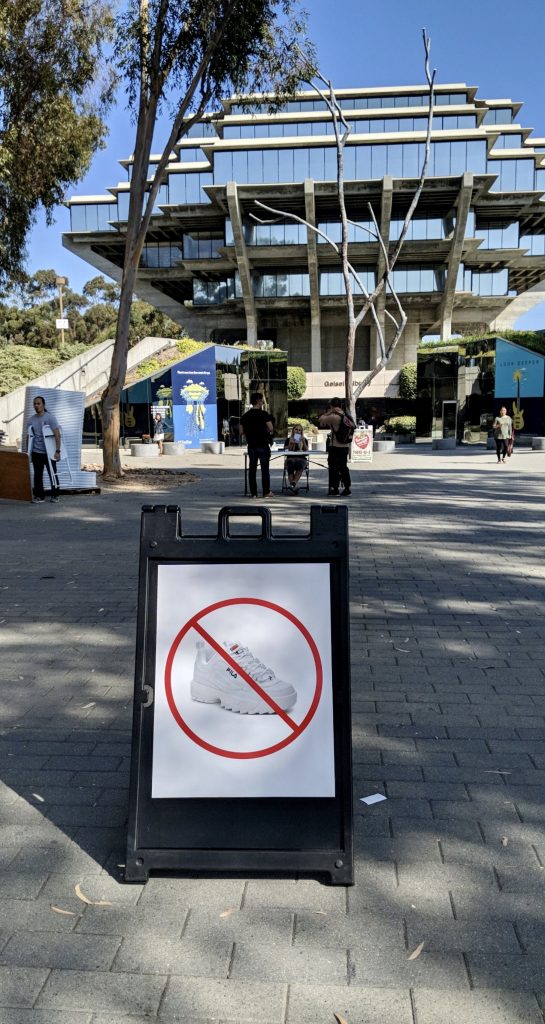
The Declaration of Independence states that “all men are created equal, that they are endowed by their Creator with certain unalienable Rights, that among these are Life, Liberty and the pursuit of Happiness.–That to secure these rights, Governments are instituted among Men, deriving their just powers from the consent of the governed.” Hence, the text is implying that every man has the inherent right to a good and fulfilling life. It is widely believed and proven that education increases the quality of life. Therefore, education is a basic human right and every citizen in the country should be able to access it. Then the above statement could also imply that every person has the right to a free college education. However, the college reality in America is far from the supposed truth stated in the Declaration of Independence. College tuition is affordable or free in almost all developed countries except in the United States. Why is college almost unaffordable for the majority of Americans? Why is American college tuition so uniquely expensive compared to college tuitions around the world?
The idea of freedom and its many sub-categories is expressed in the Declaration of the Rights of Man and of the Citizen. It can be seen that there are many types of freedom: religion, speech, etc. The attached image shows an example of freedom of speech as expressed in article XI which expresses the significance of the freedom to communicate whether it be written, spoken or printed. The images represents freedom of speech through print as newspapers are a platform to communicate and write freely. However, it also states that abuse of the freedom of communication shall be punishable by law. This begs the question of what should be considered abuse of freedom of communication and how harsh should the punishment be?
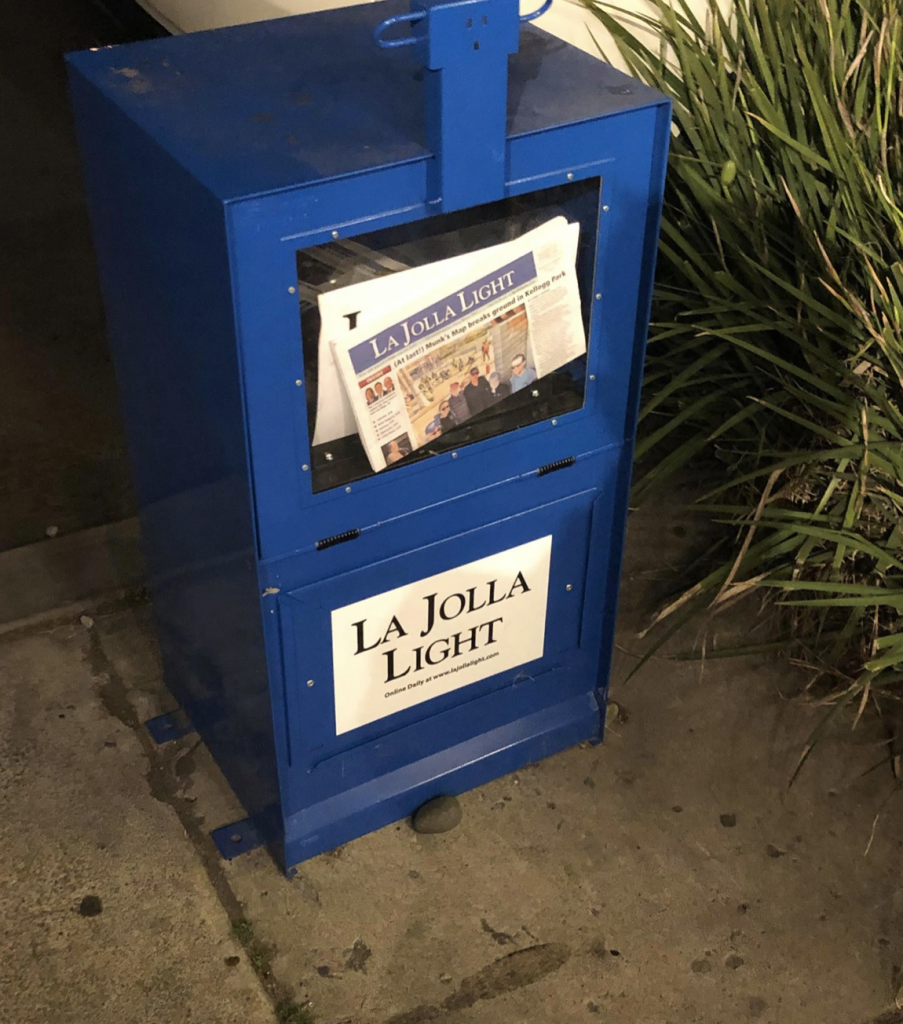
This illustration depicts one of the many grievous acts of violence towards the free people in the 13 united states. Under the Declaration of Independence, the appointed United States congress stated the undeniable imperativeness of protecting the inalienable rights of the people. A direct quote stated ” For protecting them, by a mock Trial, from punishment for any Murders which they should commit on the Inhabitants of these States:” The exact murders that were done during the Boston massacre kindled the spark that would be printed on the pages modern Americans now hold dearly as a key foundation, second to the constitution, in developing the laws of the country. In further analysis, you may wonder to what extent will natural rights be protected.
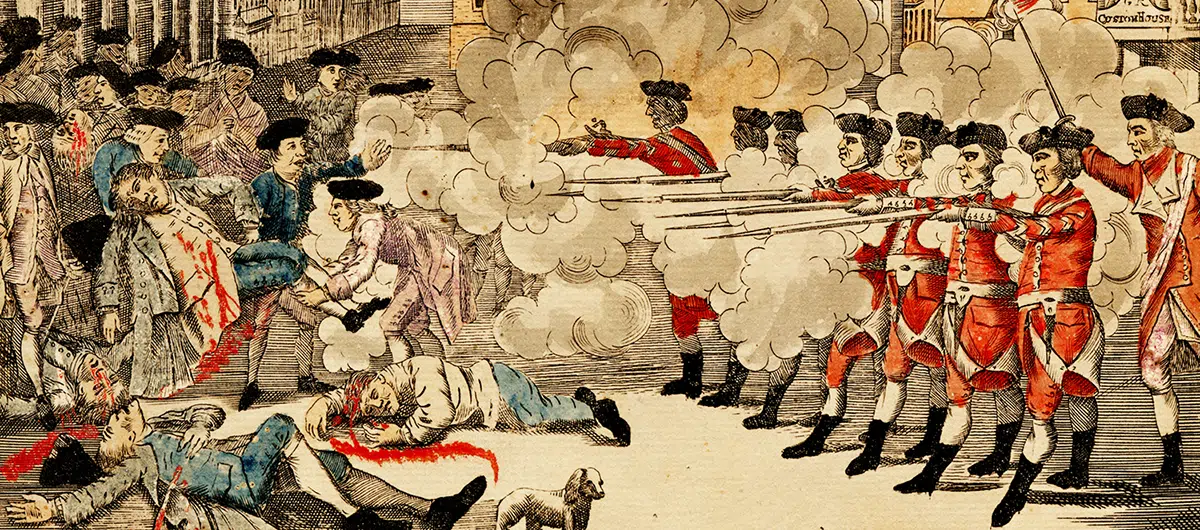

Article 13 of the “Declaration of the Rights of Man and the Citizen” states that we are all subject to a common tax, to maintain public force. As a result, the government is allowed to tax me and to take money whenever, and wherever I make a purchase. As it is my given duty to maintain the pockets of the sovereign, I could never imagine avoiding taxes with techniques such as laundering, or offshore bank accounts. Additionally, I could never imagine creating shell companies to hide said money. Article 14 states that every citizen has the right to see where their tax dollars are going. Obviously the tax dollars are going to the government! Considering the government is so large, it’s almost impossible to see where in the government your money is going to. It’s almost as if the government makes it hard for you to know: shocker. Is it going to the environment (probably not)? Is it going to someone’s pocket (who knows)? I ask you; do you know where your tax dollars are going?
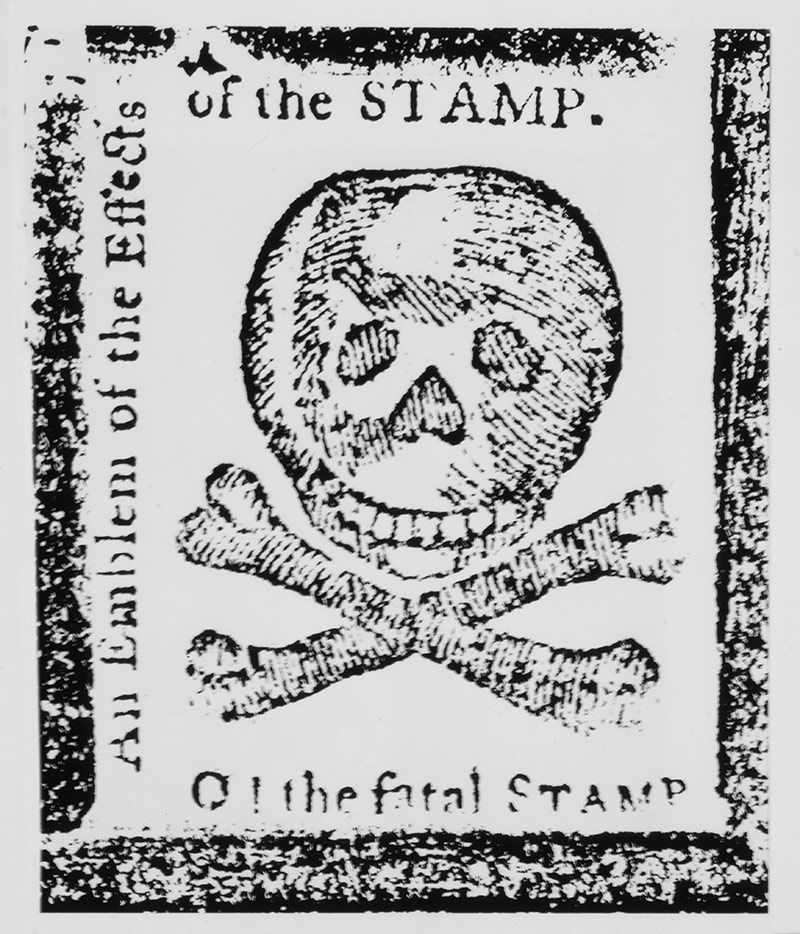
After the Seven Years War between the European powers, Britain after defending her colonies during the war, including the American colonies, resulted in the empire to go into debt. Understandably, Parliament decided to raise taxes on the colonies it defended as compensation for maintaining their safety. To their surprise the American colonies were enraged by the amount of taxes that were levied on them. Why did these protests occur? To put it simply, despite having been protected by the British during the war, the colonists found it unfair that they had no consent in the making of these tax legislatures, let alone did not have any representation either. As the founding fathers stated in The Declaration of Independence, as they provided evidence of the failure the King was as a Prince for the colonies,”For imposing taxes without our consent”. To the American colonists, failure to allow consent of these tax laws was an infringement to the social contract established between the citizens and the British monarchy. The failure of Parliament to follow their personal will of the island nation instead of the general will of her state AND her colonies is what angered the colonists. This eventually lead to the rise of the Sons of Liberty, whom opposed the taxes levied such as the stamp act, performing multiple actions against the British loyalists, and eventually causing the infamous Boston Tea Party, a major turning point that would remove negotiations off the table and made independence from the empire as the only favorable choice for the founding fathers.
Interestingly enough, despite agreeing with most if not all the arguments that the American colonists, including the founding fathers, yet there seems to be some outliers at play. What reasons do you believe that other British colonies such as those in Canada didn’t have such harsh opinions about the taxes as their American brethren? Were the American colonies simply selfish or are there are reasons?
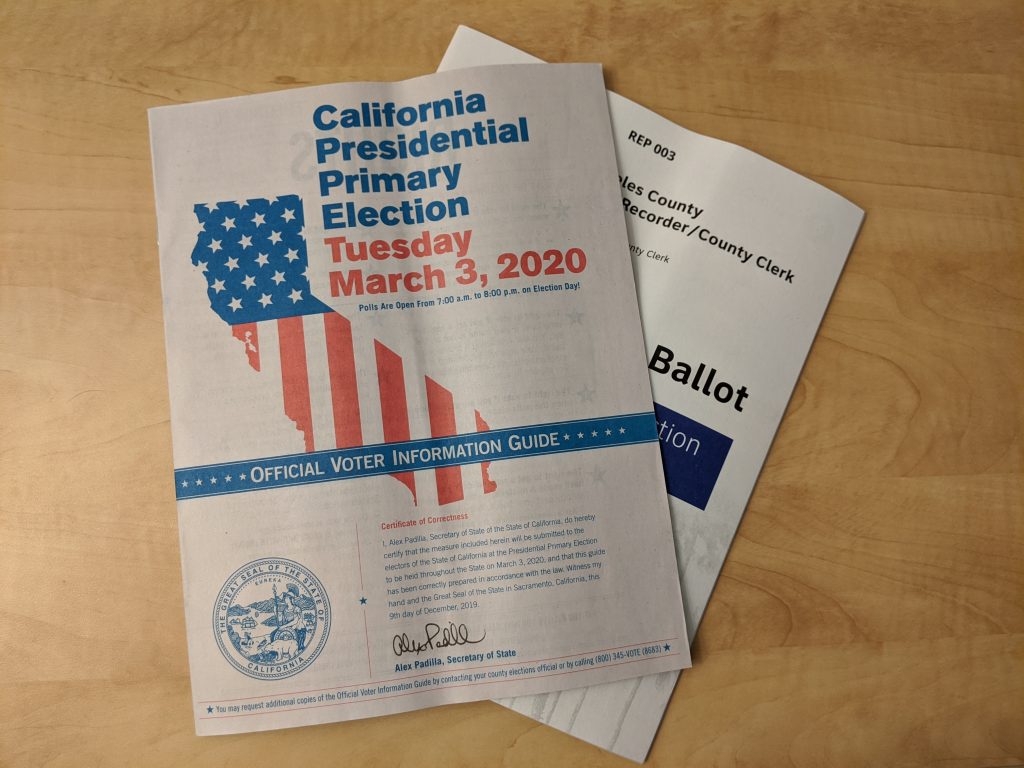
As most of us know, the California Primary Election is just around the corner which means we are all preparing to hear from our various relatives why we should vote for their candidate. Despite the annoyance of being told that “[Our] generation is a bunch of nitwits who are going to drive our economy into bankruptcy with [our] liberal stances”, elections such as these help to promote a healthy government with checks and balances.
One of the complaints made in the Declaration of Independence against the contemporary English Government is that King George III, “…has made Judges dependent on his Will alone, for the tenure of their offices, and the amount and payment of their salaries”. Because the king could not be kicked out of office nor could he be replaced through a regular process of voting, he was able to bend the justice system to his will with bribery and threats of expulsion. Instead of justice being the standard and measurement of the courts, the main ruling principle was the king’s bias.
With the election system in place, the President is unable to bribe or threaten the judicial system. If the President is caught doing so, he can be removed from office or, in the rare case that this would not happen, be voted out by the American People/Electoral College. The United States Constitution also allows for the judicial system to decide if executive orders are unconstitutional, placing yet another check on the Executive Branch.
Now some might say that the President still has control over the Judicial Branch as he nominates Supreme Court members. However, even if the President does attempt such a scandalous action, his maximum time in office of 8 years ensures that his control does not last forever.
Does the voting process help create a just judicial system or is the President still able to influence their decisions?

This picture is something that I really thought represented the ideas of the Declaration of Independence. The background is dark and represents the shadowy past that the authors of the Declaration were trying to bring the USA out of. The lanterns that are coming towards the observer are softly lit, showing how there is this hope for the future.
To me — the lanterns, the hope for the future — really encase the ideas that are so central to the Declaration of Independence: “that they are endowed by their Creator with certain unalienable Rights, that among these are Life, Liberty and the pursuit of Happiness.” Since, there is this hope that with the Declaration, that people would be able to come out of the darkness and have the right to life and liberty. The variety of colors of the lanterns overarching shows how the future Americans have the freedom to pursue their happiness. All people in America, whether it was 1777 or now in 2020, all have a different definition of what happiness means to them and the Declaration leaved the meaning ambiguous.
In modern times in America, we are still working on making sure all people have access to the right to pursuit of happiness because it is still being hindered because of societal issues with race, gender, religion, sexual orientation, socioeconomic status, and many others. The ability to find happiness is something that I believe the authors of the Declaration wanted to for all people, but as the world changes, do you thing the meaning of “happiness” has changed? Do you think that the definition of happiness the authors used is still applicable now? Does it need to be updated to fit the modern world?
The Declaration of independence asserts people’s rights to choose their own government. Under the unfair treatment from the government of Great Britain, the colonies are unified and become independent from Great Britain. People clearly noticed a problem of equality and made this decision of asserting independence. In the Declaration, it says that “We hold these truths to be self-evident, that all men are created equal, that they are endowed by their Creator with certain unalienable Rights, that among these are Life, Liberty and the pursuit of Happiness.” When I first learned about it, I was taught that it simply translates to “people are born equal”. One day, I saw this picture in one of my cogs classes where the professor used a picture of Abraham Lincoln as a demo. It reminded me of the civil war which happened after the publish of the declaration of independence. Clearly “all men” in the declaration of independence doesn’t include those who worked as slaves. It then also made me think that what about women, and learning about the rights of women during that time also refreshes the definition of “all men” for me. Furthermore, Thomas Jefferson actually drafted the declaration with the issue of slavery but it was removed later. Is it maybe that the people wrote Declaration of independence never take in consideration of people from other races? If it is the case, why were women excluded as well?
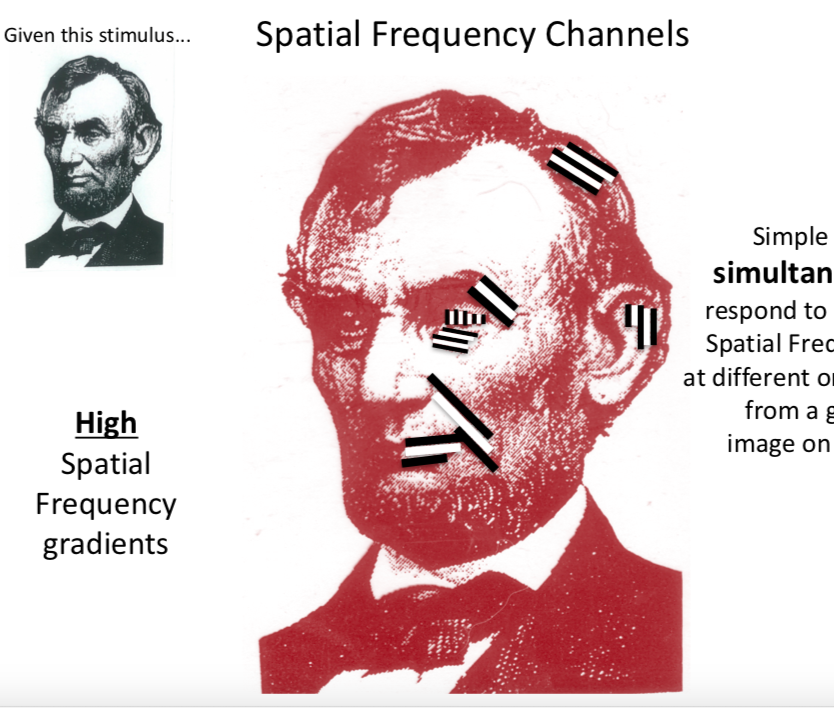

The Declaration of Independence is more than a declaration of intent – it was written to symbolize the both the extremely real difficulty of attaining freedom and the massive victory that it was envisioned to be (back when the document was written). Unjust rule was not just a “problem” that people had to deal with as peoples lives are totally jeopardized when there is government corruption. However, for a matter of life and death, until the Declaration was put forth, there simply wasn’t a strong action to combat this global problem. Locke’s Second Treatise similarly targets corruption in the ruling class as the problem to be combated, but it stands as merely philosophy (intellectual ideas). The Declaration was the opening move of a rebellion (or what is now definitively considered to be a revolution) against an unfair system of government that was not looking out for its people.
Before this critical action, there was nothing compelling people to try to make justice happen. People were living through constant wars where the victor got to do whatever they so desired until, once again, something bad happened. However, the DOI stands for much more than that. It specifically marks the corruption that drives this vicious cycle as the problem to be addressed. It details in length how this problem pervades lives, both on a governing level and on a human level. In the end, it declares that this is the problem that the American people freely choose to stand together to fight. Just because they are starting this confrontation does not mean they’ll win. However, this problem is the problem they are choosing to engage in conflict, not because they want power, but because they want what is good for the people.
I chose this picture to represent these ideals because I feel like it represents the sentiment of acting for a better future. I took this picture while on vacation, and I feel like the gorgeous backdrop really represents something to look forward to. Similarly, while the DOI isn’t the victory in and of itself, it so confidently represents freedom that attaining it seemed/seems inevitable. It’s description of attaining freedom as something to aspire and work for is like the flight itself, since you’re never going to get there unless you actually try to do it.
My question is: just because we’ve made many advances towards attaining the level of freedom that we currently have, are we there yet? There still seem to be many problems in terms of human liberty, so how do we stack up right now in terms of actually being independent?
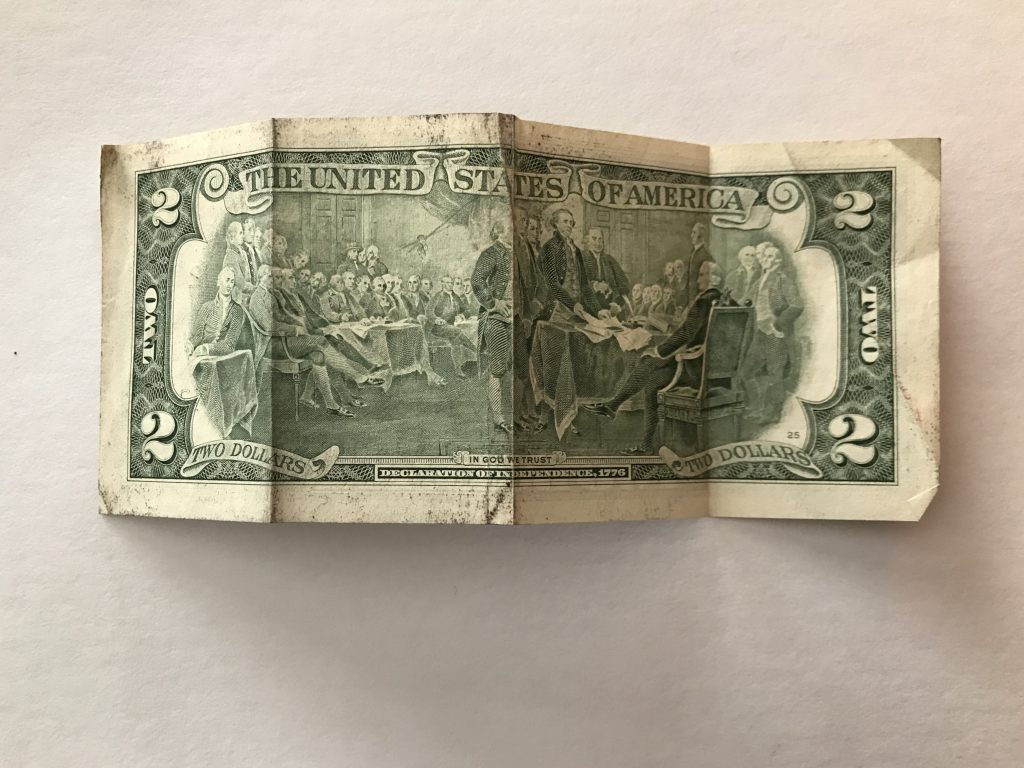
Everyone likes to have money. But have you ever thought to look at the other side of the bills to see what is printed back there? Well, on the back of the two dollar bill is a depiction of the Declaration of Independence which occurred in 1776. This scene is from the convention that was held where representatives from each of the 13 colonies/states came together and discussed declaring their independence from the British monarchy and adopting a new form of government. In this picture, it can be seen that the representatives came together to sign the document for the institution of their new form of government. One of the main reasons that the people of the United States wanted to separate themselves from the British empire and government was the fact that they were being treated unfairly. An example of this was the Tea Act which enforced a British tariff on imported tea, so the Americans retaliated through the Boston Tea Party where they protested this unfairness. They also felt that the king was a tyrant and that the monarchial form of government was not fit for the Americas for they should not have to succumb to a power that was across the ocean. In the Declaration of Independence, the authors and those who signed it made clear that they were declaring themselves to be a separate nation from Great Britain and laid out the injuries the king had made against the colonies. This document is a written expression that the people of the United States had the right and duty to overthrow and abolish a governing body if they see fit as to maintain their natural rights. These ideas aligned with those of Rousseau’s Social Contract. This is a very significant part of American history and is perhaps the reason for being on the back of the two dollar bill. So is that why everyone carries a two dollar bill in their wallets? Is the fact that its depiction on the back of this bill is what makes it more desirable being that it relates to our independence as a nation? What other important scenes in American independence could be on the back of dollars?

One of my favorite things to do is to explore San Diego in search of the perfect street tacos (especially since yesterday was Taco Tuesday). The most divey street taco stands, run by an old grandma in the back, are almost always the best-tasting tacos! The tacos pictured above were no exception! Incredibly flavorful and cheap 🙂 Unfortunately, many of these kinds of restaurants have been forced to shut down during ICE raids as some have workers who illegally immigrated to America. Sadly, this recently happened to a keystone bakery called Con Pane Rustic Breads and Cafe in Point Loma. (some more info linked below if you want to be sad)
Furthermore, for those who are unaware, street food vendors have recently (early 2019) been legalized in Los Angeles to protect immigrants by giving them the means to earn money. This is actually a hot topic as some may perceive this legislation as taking jobs away from “Americans” whereas others see it as empowering immigrants to pave their own way to a better life in America. Purely from a food perspective, I believe this was a positive move because it allows cuisine to expand to more cultures and taste new perspectives in life (both figuratively and literally). Call me an idealist, but I hope this law enables people to be more open-minded to accepting new cultures through food, especially during times when politics and racism are more polarized then ever. America is, after all, the melting pot – a melange of so many different cultures.
In Declarations of the Rights of Man and of the Citizen, it states “law can only prohibit such actions as are hurtful to society. Nothing may be prevented which is not forbidden by law, and no one may be forced to do anything not provided for by law”. Preparing food with love and care is probably the least hurtful contribution to society that any person can make, so it seems to me legalizing street vendors is almost a given. Yet, other places still have many strides to make as racism and xenophobia continue to dominate.
What do you think about street vendors? Do you think legalization is good or bad? How should legislators handle the food industry? Do you think immigrants in the food service industry should be penalized for working?
Bonus question: Where can I get good tacos in San Diego?
The fifth amendment in the US Constitution declares that “no person shall be deprived of life, liberty, or property; nor shall private property be taken for public use, without just compensation.” However, minorities throughout the United States have long faced issues of inequality where their unalienable rights have been violated by society and its authoritative figures. The picture below advocates for the abolish ICE movement. Trump’s administration encourages the implementation of policies such as the zero tolerance and family separation. These go against the fifth amendment as the policies aim to restrict/control the liberty and everyday life of immigrants. Trump has promoted degrading stereotypes particularly towards the Mexican-American community in the country, resulting in the deprivation of life, liberty, and property among society. Even back in the late 1800’s, when the Treaty of Guadalupe Hidalgo was settled between the United States and Mexico, many of the territories that were owned by Mexican Americans were taken away and never paid according to its worth. Immigrants became deprived of their private property and were to remain silenced. The constitution claims that the people ought to promote the general welfare of its society, but what happens when a president imposes policies that destroy families and disturb their mental health? A recent impeachment trial was unsuccessful in removing the president from office, what can society do now? How can we ensure that our unalienable rights are protected when all the odds are against us?

A major reason that the colonies fought for independence was for being treated unfairly financially. Britain charged various taxes on the colonies to pay for wars, despite no say from tho colonists themselves. High taxes caused much retaliation from the colonists, including the Boston Tea Party. In the constitution, we see the desire for protection of property. Amendment 5 protects private property, while Amendment 8 prevents excessive fines. Along with this, by declaring there independence from Britain, Americans were freed from paying taxes to the king.

This image is a map of the United States which shows the 50 individual states that have their own rights but still make up a whole country. Amendment 10 talks about the power that the individual states or the people are given when the power is not reserved for the United States. This is important because it defines the balance of power between the states and the government, and shows that the states have individual powers so that the federal government does not overstep its bounds and become tyrannical. The 10th amendment gives states rights in order to limit the authority of the federal government. However, states are still subject to federal law, so when does federal law override states rights? Should the federal government be able to take away states’ rights?
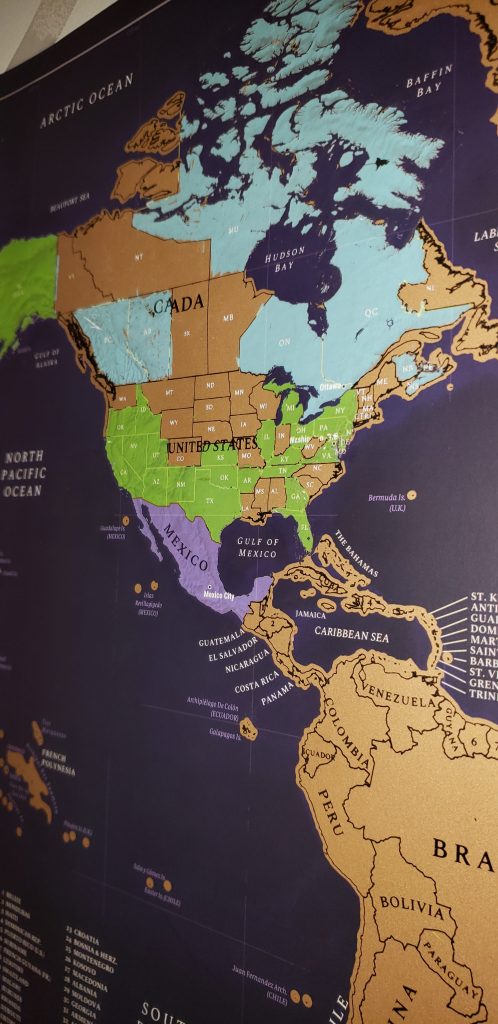
The markers here represent diversity–specifically intellectual diversity, but also racial, religious, and ethnic diversity. One of the most powerful points reverberating throughout the Declaration of Independence and the Constitution is that of the inherent dignity and equality of each every person regardless of their individual, particular characteristics (one might say our “being made in the image of God”). While it took some time for the US to progress to dispense with, as regards legality, race, sex, etc. for consideration, I nonetheless think the universality is contained within the two founding documents–and many of the Founding Fathers themselves expressed as much in their private writings, contrary to what perhaps they had to show in public. In specific, the idea that this equality is a “self-evident” truth, that we all have “unalienable Rights,” embodied not only in the main articles of the Constitution, but also in the Bill of Rights (the right to free speech, the right to bear arms, and so forth)–these are all extremely powerful and fundamentally unique ideas, ones not exemplified in other countries’ constitutions (i.e. no other country has an unequivocal right to free speech). We often take it for granted that we have major liberty with respect to our being the architects of our own lives, and so long as we abide by relatively minimal rules of non-interference and such, we are treated as individuals with rights, rights not to be taken away. To what extent do you think these ideas and actual textual mechanisms have contributed to the intellectual diversity within America? To its being, by far, the world leader in medical innovation, entrepreneurship, technological advancement, and so forth? Also, what about racial, ethnic, and religious diversity? The US, while having a core of central values, is also the biggest amalgamation of different cultures and peoples–how have these eternal values enshrined in the Declaration of Independence and the Constitution contributed to the unparalleled diversity we witness in the US?

The first amendment of the constitution talks about freedom of expression and religion, and is based on the fact that many of the first American settlers were fleeing religious persecution in certain parts of Europe. Although “Congress shall make no law respecting an establishment of religion,” there are still many parts of the government that contain Christian sayings and ideology. “In god we trust” is written on American dollar bills, and god is also mentioned in the Pledge of Allegiance, which is used in American public schools. What do you think about the constitutionality of these phrases, and where would you personally draw the line on the separation of church and state?
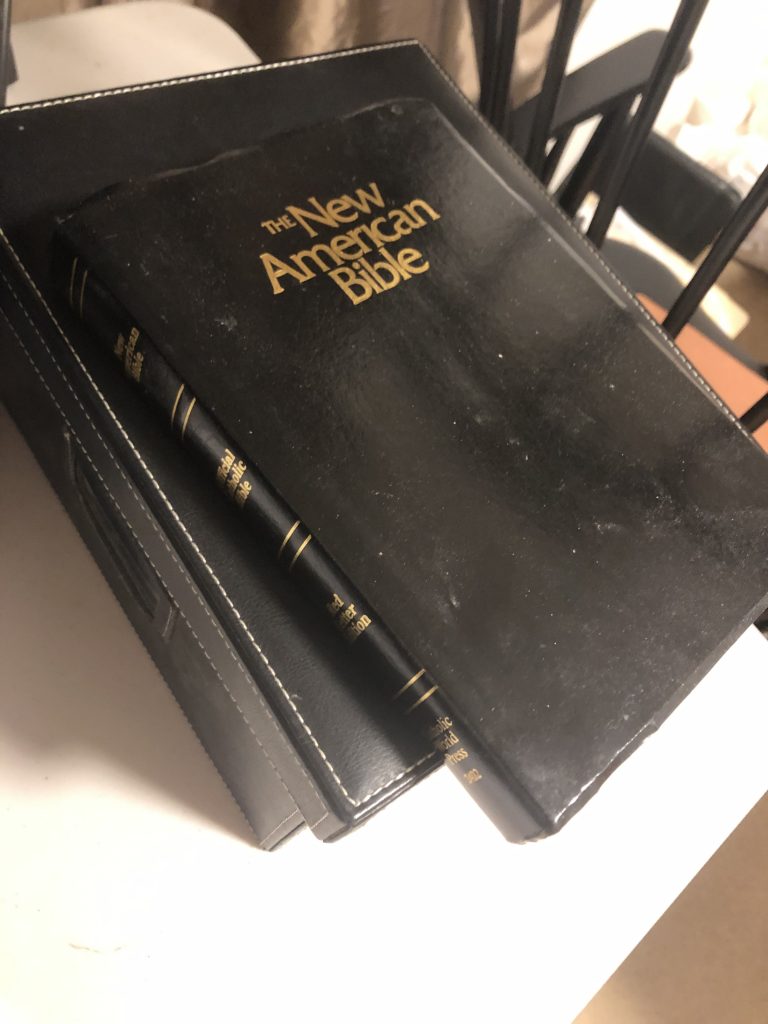

Tea played a significant role in the foundation of the United States of America. More specifically, the tax on tea helped to spur a revolution. This photo links very closely to the Declaration of Independence and our secession from the King of England. In this separation, the document declares that “All men are created equal” which holds true to enlightenment values, that then helps their cause against the King’s taxes. Thus, we come full circle from tea, to taxes, to grievances, and finally, to independence. But it doesn’t stop there. What other values could this tea bag represent? Is its revolutionary purpose isolated to that of America or does India also find some meaning in this image when they also fought British rule? It seems that even the biggest of actions and consequences can arrive from the smallest of causes.